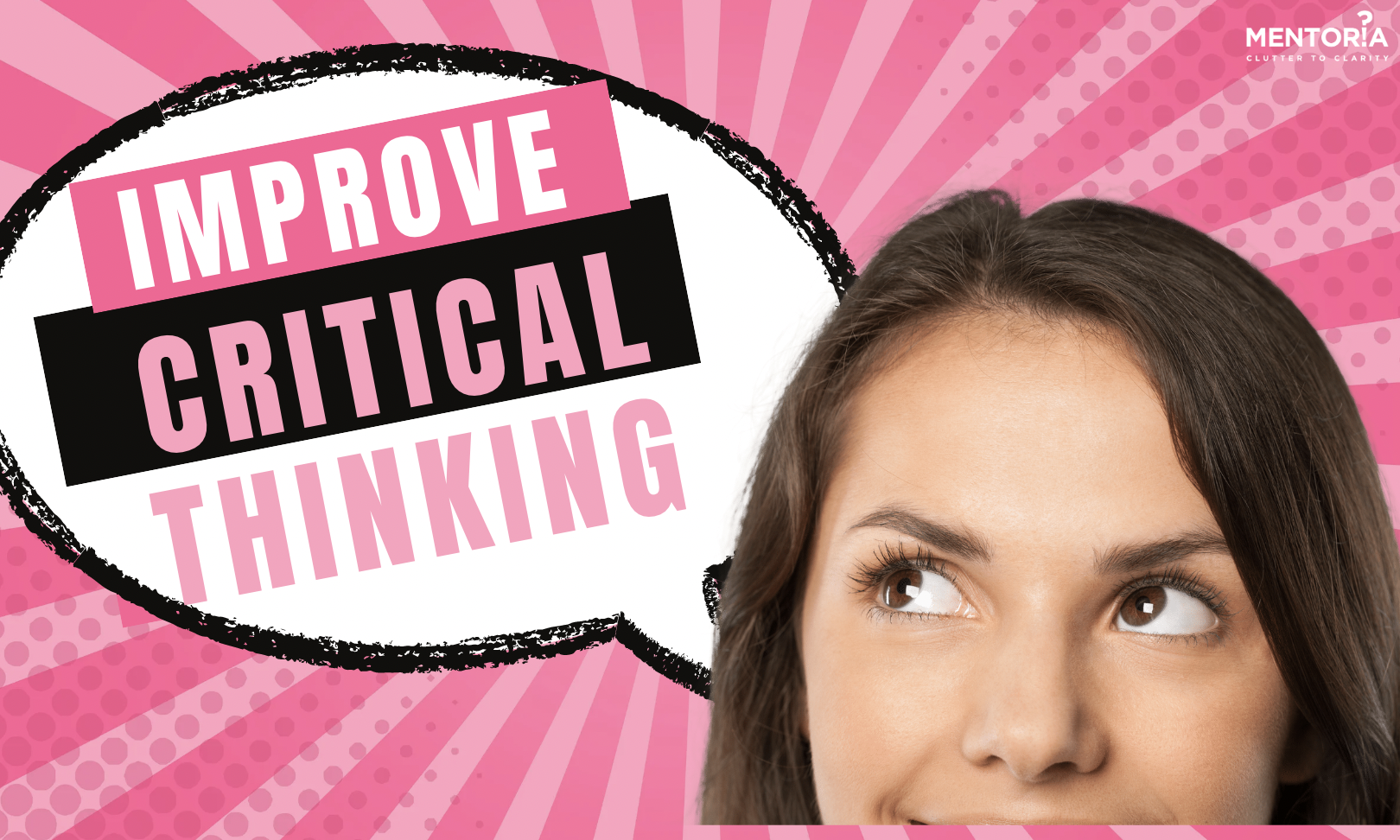Best Ways to Improve your Critical Thinking Skills!

Every day, we make choices that have an impact on our lives.
You cannot overlook the significance and necessity of making wise decisions in a personal or professional setting. The capacity to consider the evidence, assess the reliability of a source, and think critically is becoming more and more crucial; critical thinking is one of the essential skills to develop for the future. This is due to the sheer amount of information we are exposed to on a daily basis, as well as the prevalence of fake news and social media bubbles.
If there are any weaknesses in our decision-making process, critical thinking enables us to identify them and improve our decisions by doing away with them. To put it simply, you must be able to make decisions swiftly and critically regardless of what you are doing. To do this, you must possess the necessary decision-making abilities.
Why are critical thinking skills necessary?
Critical thinking involves constantly questioning what is obvious. Even if everything seems to be working as it should in your line of work, for example, using critical thinking will allow you to search for fresh, more effective approaches. The foundation of self-improvement and development is critical thinking ability. Therefore, they are very important to have in today’s employment market.
Just consider this—
According to recent AACU research, 93% of companies emphasise critical thinking skills more than an applicant’s college degree.
Here is a list of actions you should take if you are still unsure of your capacity for critical thought or wondering what you should do to enhance it:
- Understand what you want: Critical thinking starts with being clear on what you desire. In order to address issues and ensure that goals are met, we must use critical thinking. Every choice we make has a plan or purpose, and figuring out what is in detail and what we genuinely want from it provides us with a place to start. Time for a monologue; ask yourself: What do I want? What can I gain from this? You won’t be able to make the best choice until you have the answers to these questions.
- Face your biases: When solving challenges, we frequently solely consider ourselves. However, attempting to consider things from another person’s perspective can be helpful when making decisions and exercising critical thought. Additionally, it helps you see the bigger perspective of the circumstance. Say you’re trying to find a solution to a challenge at work. Consider how your best friend, your partner, or a sibling could address the situation. Consider how your manager may tackle the situation now. You can find that by permitting oneself to consider many viewpoints, you arrive at answers you hadn’t previously thought of.
- Take into account the effects of your choices: Every decision we make impacts us personally or, occasionally, on other people involved in the issue. You must evaluate the potential outcomes that could result from each of your alternatives and select the one that would benefit you the most while minimising the adverse effects on other parties. Making a list of benefits and drawbacks is a useful method for doing this. You can make a decision that is considerably more informed if you ask yourself to consider both all potential negative outcomes and all potential positive outcomes.
- Do your own research: We’re sure you’ve heard and know that knowledge is power. But many of us have the propensity to cling tightly to what we already believe and are hesitant to let go of it. In order to address challenges, critical thinking occasionally entails letting go of your convictions. Reluctance to learn, study, or adopt new beliefs will only hold you back and will undoubtedly hinder your critical thinking ability. By doing your study and concentrating on learning, you’ll discover that as time passes, you’ll evolve and adapt to deal with new challenges and develop your critical thinking.
- Acceptance is the key: It can be more difficult than it appears. No matter who we are or what we do, we all make mistakes, so it’s acceptable. Most people refuse to acknowledge this reality, which prevents us from exercising critical thought. For your own welfare, you should change what you are doing if you know it is wrong but continue to do it anyway because you already believe you can do no wrong. Always double-check your work, keep an open mind, and see your mistakes as a chance to grow.
- Break it down: It’s fantastic to be able to see the big picture, but it’s even better if you can divide things up into more manageable chunks. Smaller chunks are simpler to process and deal with for this reason mentally. Working on a lot of little things at once is simpler than trying to address the greater picture, which may be overwhelming.
- Be curious: Ask a lot of open-ended questions. Channel your inner child! Dare to be curious! Ask lots of “who,” “what,” and “why” questions because curiosity is a crucial quality of critical thinkers.
- Give different perspectives some thought: Everyone has their motivations and ideas; even extremely intelligent people who present plausible arguments are subject to personal biases and prejudices that colour their judgement. So, when someone gives you information, ask yourself whether there are any alternate accounts before jumping to conclusions.
- Learn to be an active listener: When people speak, pay close attention to what they are saying and try to understand their point of view. Putting yourself in another person’s shoes can help you grasp their perspective and goals, making empathy a very beneficial skill in this situation. Remember that listening without prejudging is a crucial component of critical thinking.
- Question the authenticity: Look at the source of information. Is the source reliable? Why are they delivering this information, exactly? Are they, for instance, attempting to sell you something or persuade you to vote for them?
How to practise critical thinking?
It takes effort to be able to think critically. Sometimes you have to let go of your beliefs in order to work with fresh concepts. Although it can be difficult at times, if you do it correctly, it will all be worth it! If critical thinking skill is an area where you need improvement, our counsellors can help you learn how to think like a champ while you get #CareerReady! What are you waiting for? Take the Mentoria Assessment today!








